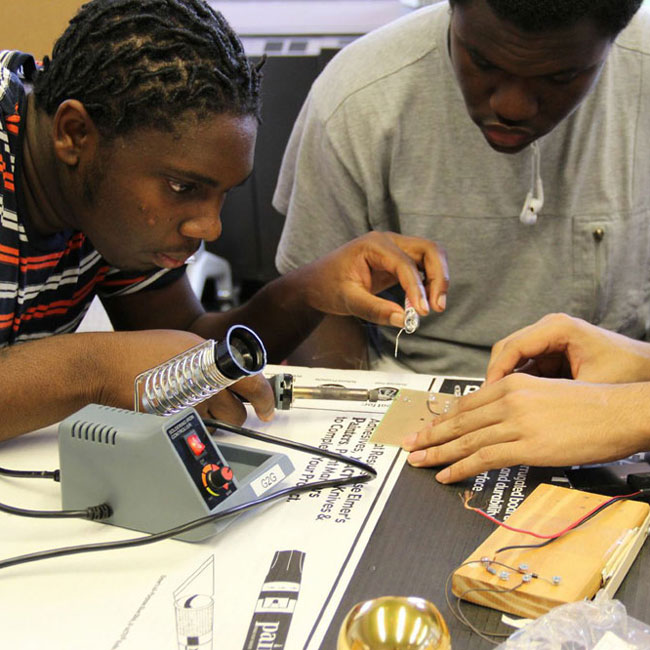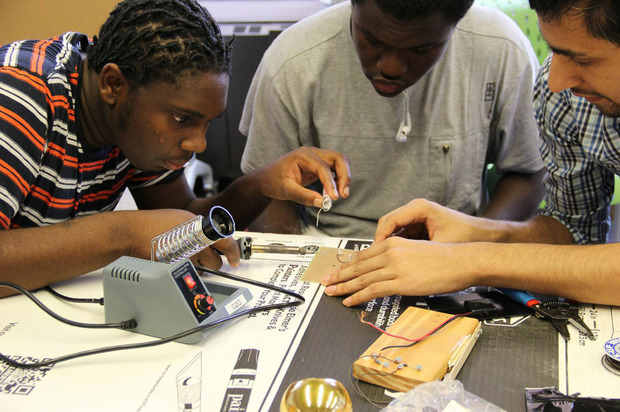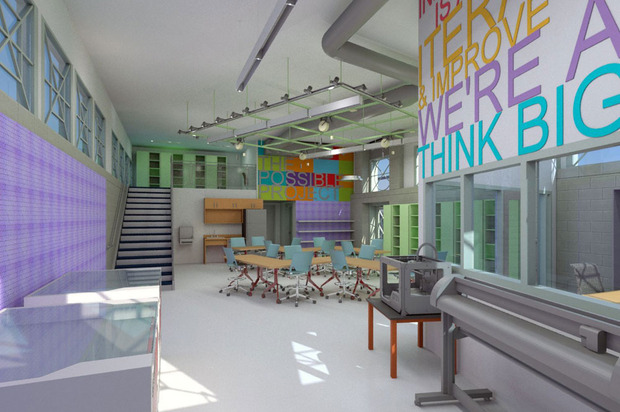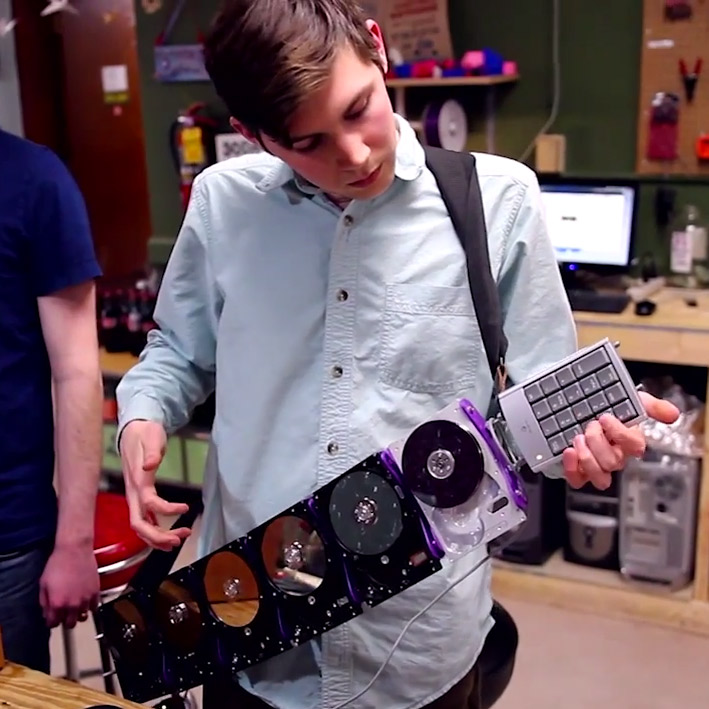The Possible Project: A Makerspace for Teen Entrepreneurs
An after school program campaigns for funds to provide students with a cutting-edge, hands-on learning environment


In a world where even a college degree seems to be barely enough to start a successful career path of any kind, entry into the workforce now demands a worthy skill set and competitive edge in a global economy. Anticipating this, lifelong entrepreneurs Mark and Becky Levin founded The Possible Project, an after school program in Cambridge, MA that helps high school students master the skills necessary to create and run their own businesses. In light of the start-up industry’s sustained growth and the disruptive nature of the space, Becky and Mark Levin are right on the money.
Since 2010, The Possible Project has partnered with three local public schools and already supported over 250 students, many of whom come from backgrounds that present potential barriers to achievement. As part of the program, the teenagers have launched a multitude of healthy ventures, selling products and services from the artistic (handcrafted accessories, boutique nail art) to the pragmatic (smartphone customization, computer repair and eBay packaging services). Throughout the three-year curriculum, The Possible Project provides resources, mentorship and lessons in design and production.

Now, The Possible Project is keeping their students ahead of the game by building a cutting-edge, 1,800 square foot makerspace, slated to open this December. Conceptualized after the founders noticed that students were ordering product components from distant sources, the space will provide a hands-on learning environment equipped with digital design software, a vinyl cutter and a 3D printer. This, the Levins hope, will give their students “the opportunity to design, prototype, manufacture and sell their goods at scale.” Fundamentally, the space will give students at The Possible Project the ability to cultivate their ventures from raw material to launch and expansion.

However, The Possible Project can’t do it alone. The program is currently seeking funding through a Kickstarter campaign to equip the makerspace with a professional-grade Trotec Speedy 400 laser cutter, a versatile machine that will open a whole new spectrum of possibilities for students. “They’re surprisingly interdisciplinary,” The Possible Project writes on the campaign page. “A graphic designer uses a laser cutter to create signage and corporate collaterals like logo-engraved glassware; an architect produces scale mockups; a jeweler makes finely-cut earrings; a toy designer produces parts for her latest action figure.”

The campaign isn’t leaving this claim up for speculation either—pledge rewards will all be made by students using the Trotec laser cutter purchased with the donations. Rewards include laser-etched champagne glasses and water bottles, laser cut thank you cards, and a one-of-a-kind, laser cut Pangolin chandelier. All items are completely unique to order, personally connecting campaign donors with the students they are helping.
Back The Possible Project’s makerspace via Kickstarter through 1 November 2014.
Images courtesy of The Possible Project












